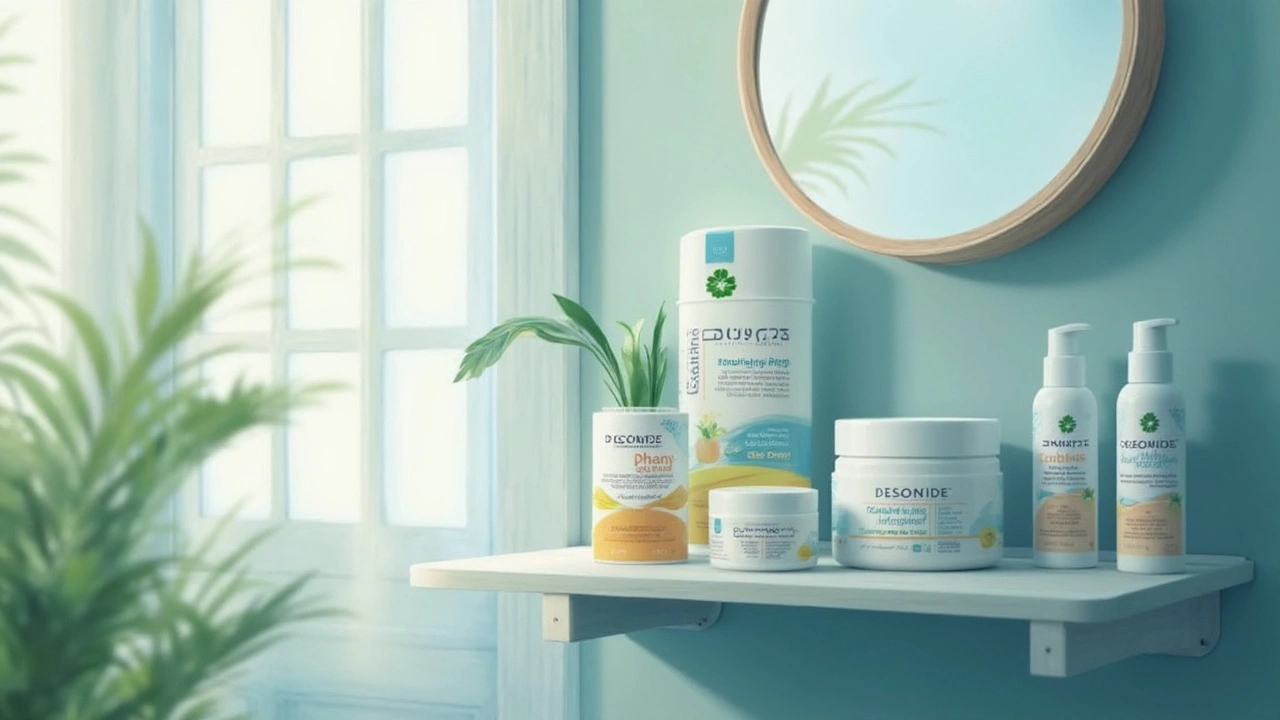Eczema Treatment: What Really Helps Relieve Itchy, Inflamed Skin
Struggling with eczema can get old fast. The redness, itchiness, and scaly skin feel unfair and uncomfortable, and sometimes it’s tough to find relief that actually lasts. Here’s the practical truth—beating eczema isn’t just about finding one magic cream. It’s more about daily habits and knowing a few tricks that really work in real people, not just medical textbooks.
Moisturizing is your first line of defense. Dry skin kicks off most eczema flares, so slathering on a thick, plain moisturizer right after showering makes a huge difference. Look for unscented creams or ointments (think petroleum jelly, or heavy-duty jar moisturizers). Creams with ceramides are a plus—they help repair the skin barrier, making flare-ups less likely. Avoid watery lotions, especially ones with fragrances or alcohol—they sting and dry your skin even more.
When itching gets wild, resist the urge to scratch. Easier said than done, right? But scratching breaks the skin, making flares worse and risking infections. Keep nails trimmed. Some people have luck wearing cotton gloves at night. An ice pack wrapped in a towel gives immediate relief to hot, angry patches.
Topical steroids are the standby for moderate to bad flares. Your doctor might suggest a mild hydrocortisone cream for tricky spots, like the face, or a stronger one for stubborn patches on elbows or knees. Use them exactly as directed—too much or too often thins your skin. If you’re worried about side effects, ask if you could try non-steroid creams like tacrolimus or pimecrolimus.
Bathing can soothe skin—or make it worse. A warm, short bath is soothing, but skip the hot water. Use gentle cleansers, not bar soap or body wash with fancy scents. Some people swear by adding a cup of bleach (yes, really—like what’s found in clinical bleach baths) to a half-full bathtub to lower skin bacteria. It sounds odd but dermatologists regularly recommend this for moderate to severe eczema—ask your doctor if it’s right for you.
Watch out for triggers. Everyone’s list is a bit different, but common offenders are harsh fabrics (like wool), sweat, allergens (like dust mites or pollen), and stress. Tight clothes and scratchy tags can also be culprits. When eczema flares, think back—did you try a new soap, detergent, or skin product? Tiny changes matter a ton when your skin is sensitive.
Sometimes, eczema flares point to stuff going on inside, not just the skin. Allergies, asthma, stress, and even your diet can stir things up. Don’t chase every theory on the internet—if the usual routines aren’t working, see a skin specialist. Patch testing for allergies or bloodwork for immune conditions can reveal the missing piece in tough cases.
Bottom line: Treating eczema is a mix of good moisturizers, gentle habits, smart use of medication, and knowing your body’s triggers. It takes trial and error, but with consistency and the right tweaks, most people can keep itching and burning under control—finally giving your skin (and you) a real break.

Choosing the Best Desonide Product for Your Skin Type
Finding the right Desonide product for your skin type can be a game-changer for managing skin conditions like eczema and psoriasis. This article guides you through understanding your skin's needs, the various forms of Desonide, and how to choose the right one. Learn about safety tips and signs to watch for when using these treatments. Ensuring proper skin care tailored to your unique condition can lead to healthier skin and greater comfort.
view more